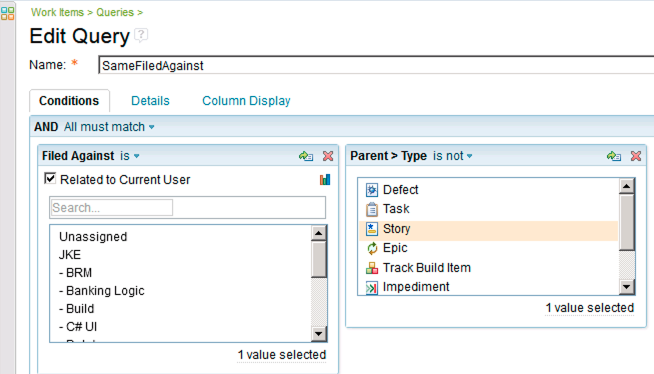How can I exclude items from a query result which have a parent of specific type and which is filed against the same category?
|
I have an actually simple problem to solve:
I need to create an RTC query which contains an expression like "has no feature as parent item which category is the same as 'mine'". So I want to exclude those items which have a parent of a specific type (a "Feature" in our process template) which is filed against the same category.
How can I accomplish that?
BR
Dan
|
One answer
Your answer
Dashboards and work items are no longer publicly available, so some links may be invalid. We now provide similar information through other means. Learn more here.

